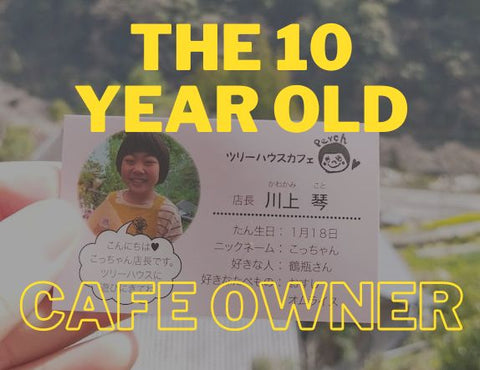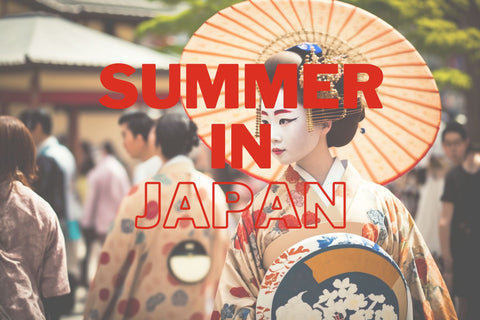
What are Tengu Masks?
Tengu, which can be translated as "Heavenly Dog" or "Heavenly Sentinel," are mythical creatures that are central to Japanese folk religion (Shinto). They are classified as yōkai, or supernatural beings, and are also revered as Shinto kami, or gods. In Japanese culture, tengu are known for their mischievous and trickster-like behavior, and they are often depicted as bird-like beings with human-like features such as long noses, pointed ears, and sometimes beards. Despite their reputation for causing chaos and disruption, tengu are also revered as wise and knowledgeable, with a deep understanding of the natural world. In some stories, they are even depicted as protectors of nature or guardians of the mountains. Tengu continue to be an important and enduring part of Japanese folklore and mythology to this day.
What Are Tengu Masks Used For?
Tengu masks are used for a variety of purposes, the most popular of which is to wear them during festivals or other special occasions. Tengu are a type of mythical creature in Japanese folklore, and they are often associated with the mountains. Wearing a tengu mask is said to bring good luck and protect the wearer from evil spirits.
There are many types of Japanese masks like the tengu, such as oni, kitsune, noh, and many others.
The Origins of Tengu
The tengu origin is somewhat disputed, with some sources claiming they originated as celestial beings or gods, while others believe they were based on real-life animals such as crows or wolves. In some stories, tengu are said to be the spirits of humans who have died and been reborn as tengu, while in others they are depicted as entirely supernatural beings.
It's important not to confuse tengu with oni (Japanese demons). While the tengu mask and oni mask can look similar to some, they are entirely different. The tengu mask is often identified by its long nose and the oni mask by it's horns.
Despite their mischievous reputation, tengu are also often depicted as wise and knowledgeable, with a deep understanding of the natural world. They are revered in some parts of Japan and are sometimes depicted as protectors of nature or guardians of the mountains.
In Japanese culture, tengu are an important and enduring part of folklore and mythology, and they continue to be a popular subject in literature, art, and theater to this day.
The History of Tengu Masks
Tengu masks have a long and rich history in Japanese culture. They are said to have originated from the Heian period (794-1185), when they were used by the upper classes to disguise their identity during festivals or other special occasions. Over time, the use of tengu masks spread to the general population, and they became a popular way to celebrate the changing of the seasons. Today, tengu masks are still worn during festivals and other special occasions, and they are also used in theatre and dance performances.

Traditional masks are usually made of wood, and they are carved in a variety of different styles. The most common style is the zenko, which has a long nose and a wide mouth. Other styles include the karasu, which has a shorter nose, and the konoha, which has a pointed nose. Tengu masks can also be decorated with a variety of different materials, such as feathers, beads, and paint.
The history of tengu masks is a long and fascinating one. If you are interested in learning more about this important part of Japanese culture, there are many resources available online and in libraries.
How Tengu Masks Are Made
Tengu masks are traditionally made from wood, paper mache, or other materials. The most common type of tengu mask is the noh mask, which is made from a lightweight wood such as cypress. Noh masks are usually painted or stained to give them their distinctive appearance. Other types of tengu masks include the kabuki mask, which is made from thicker wood, and the ji mask, which is made from paper mache.
Noh masks are designed to represent a wide range of characters, from demons and ghosts to animals and humans. Kabuki masks, on the other hand, are usually designed to represent a single character, often a famous historical or literary figure. Ji masks are often used to represent animals or monsters.
Tengu masks are typically worn during special occasions or festivals, when people dress up in traditional Japanese clothing and perform traditional Japanese dances and plays. Tengu masks are also sometimes used in religious ceremonies or rituals.
The Meaning Behind Tengu Masks
Tengu masks have a variety of meanings and symbolism in Japanese culture. The most common meaning is that they represent the duality of good and evil. Tengu are often seen as mischievous or dangerous creatures, but they can also be benevolent and helpful. As such, tengu masks are often seen as a way to protect oneself from evil spirits. Tengu masks are also said to bring good luck and fortune to those who wear them.

Another common meaning of tengu masks is that they represent wisdom and knowledge. Tengu are often seen as wise and knowledgeable creatures, and so tengu masks are often worn by those who seek wisdom and knowledge. Tengu masks are also said to represent the power of the mind, and so they are often worn by those who seek to improve their mental faculties.
The Different Types of Tengu Masks
There are a variety of different types of tengu masks, each with its own unique symbolism and meaning. The most common type of tengu mask is the noh mask, which represents a variety of different emotions, including anger, sadness, and fear. Other common types of tengu masks include the kabuki mask, which represents heroism, and the ji mask, which represents wisdom. There are also a variety of other less common tengu masks, each with its own unique symbolism.
The symbolism associated with tengu masks varies depending on the specific type of mask. For example, the noh mask is often associated with anger and fear, while the kabuki mask is often associated with heroism. Each type of tengu mask has its own unique meaning and symbolism, and it is up to the individual to choose the mask that best represents their own emotions and personality.

Tengu masks are a popular choice for those who want to express their own unique personality and emotions. There are a variety of different types of tengu masks available, each with its own symbolism and meaning. It is up to the individual to choose the mask that best represents their own personality and emotions. Tengu masks are a great way to express yourself and show the world who you are.
Tengu Mask symbolism in Japanese Culture
In Japanese culture, tengu masks are often seen as a way to protect oneself from evil spirits. They are also said to bring good luck and fortune to those who wear them. Tengu masks have a variety of different meanings and symbolism in Japanese culture, and they are a popular way to celebrate the changing of the seasons. Today, tengu masks are still worn during festivals and other special occasions, and they are also used in theatre and dance performances.

Tengu masks are often seen as a way to protect oneself from evil spirits. They are also said to bring good luck and fortune to those who wear them. Tengu masks have a variety of different meanings and symbolism in Japanese culture, and they are a popular way to celebrate the changing of the seasons. Today, tengu masks are still worn during festivals and other special occasions, and they are also used in theatre and dance performances.
Tengu Masks in Kabuki
In traditional Japanese Kabuki theater, kabuki actors may don tengu masks to portray characters such as tengu, which are mythical creatures often depicted as bird-like beings with human-like features. Tengu are known for their mischievous and trickster-like behavior, and in Kabuki theater, they are often depicted as causing chaos and disruptions.
Where to Buy a Tengu Mask
If you ever are able to come visit Japan (which we strongly recommend), you can find some local shops that will offer varying levels of tengu masks in tourist areas. As we are based in Kyoto, my number one recommendation is Kyomizudera. You will find a number of interesting old shops along they way that specialize in these type of traditional Japanese items. Another option is Don Quijote, one of Japan’s favorite discount stores that is also loved by visitors of Japan. They will have a section with unique Japanese items and costumes where you will likely find a Tengu mask. Of course we also offer Tengu masks that we can ship directly to you, wherever you are! Tengu masks can also be made at home using materials such as wood, paper mache, or other materials.
When purchasing a tengu mask, it is important to consider the quality of the mask and the materials used. Tengu masks can range in price from a few dollars to several hundred dollars, so it is important to find a mask that is both affordable and of good quality. It is also important to consider the intended use for the mask. Some tengu masks are meant to be worn as part of a costume, while others are meant to be used for decoration or as part of a mask collection.



